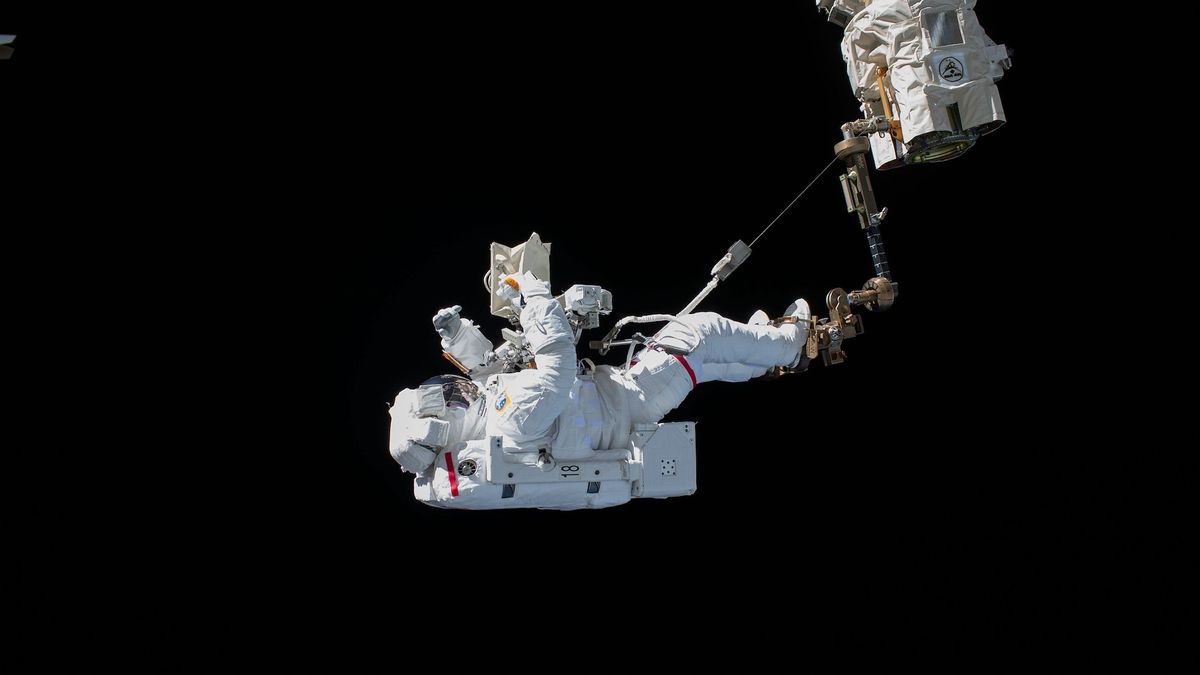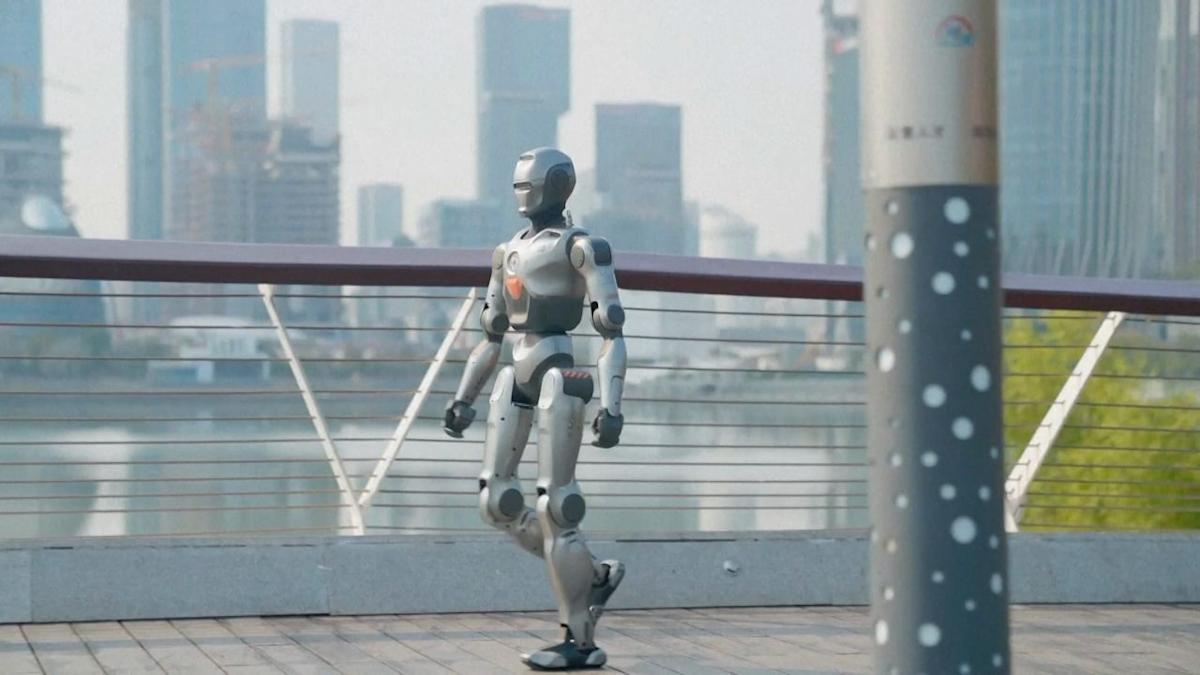Cosmic Belches: The Surprising Science of Burping Beyond Earth
Science
2025-04-27 09:00:00Content

Have you ever wondered what happens when an astronaut tries to burp in the weightless environment of space? It's a fascinating question that reveals the surprising complexity of a seemingly simple bodily function!
On Earth, gravity helps us burp effortlessly. When gas builds up in our stomach, the downward pull naturally assists in pushing that air upward and out of our mouth. But in the zero-gravity conditions of space, things work quite differently. Without gravity's helpful push, burping becomes a uniquely challenging experience for astronauts.
In fact, burping in space can be downright uncomfortable and potentially messy. Without gravity to separate liquids and gases in the stomach, astronauts often experience what's called a "wet burp" - where liquid can accompany the gas, creating an unpleasant and potentially embarrassing situation. Space agencies have even developed special techniques and dietary guidelines to help astronauts manage gas and minimize these awkward moments.
Astronauts have reported that burping in space feels different - the gas doesn't naturally rise and exit the body as it would on Earth. Instead, it tends to remain mixed within the stomach contents, which can cause discomfort and bloating.
So while astronauts can technically burp in space, it's not quite the same smooth, effortless process we experience on our home planet. Another fascinating reminder of how gravity influences even the most mundane aspects of our daily lives!
Cosmic Burps: Unraveling the Mysteries of Bodily Functions in Zero Gravity
Space exploration has always fascinated humanity, pushing the boundaries of our understanding of human physiology beyond the comfortable confines of Earth. Among the many intriguing questions that arise when humans venture into the cosmos, one surprisingly mundane yet scientifically complex query captures the imagination: How do basic bodily functions like burping work in the weightless environment of space?Defying Gravity: The Surprising Science of Extraterrestrial Digestion
The Physics of Burping on Earth vs. Space
Gravity plays a fundamental role in how humans expel gas from their digestive system. On Earth, the downward pull allows gas bubbles to naturally rise through the digestive tract, making burping a relatively straightforward process. In the microgravity environment of space, however, the entire mechanism of gas expulsion becomes dramatically different. Astronauts experience a unique challenge where gas bubbles do not behave as they would on our home planet. Fluid dynamics in zero gravity create a complex scenario for bodily functions. Without gravitational force, gas bubbles become suspended within the stomach and esophagus, making traditional burping mechanisms ineffective. This phenomenon leads to a series of physiological adaptations that astronauts must learn to manage during space missions.Physiological Adaptations in Space Digestion
Astronauts quickly discover that burping in space requires a completely different approach. The absence of gravity means that gas cannot naturally separate from liquids and solids in the digestive system. This creates a unique challenge known as "wet burps," where liquid and gas are expelled simultaneously, potentially causing discomfort and hygiene concerns in the confined spaces of spacecraft. Medical researchers have conducted extensive studies to understand these digestive challenges. Specialized equipment and careful dietary planning become crucial in managing gas and preventing potential health complications. Astronauts undergo rigorous training to learn techniques for managing bodily functions in microgravity, including specialized breathing and movement techniques that can help expel gas more effectively.Technological Innovations in Space Digestive Management
Space agencies have developed sophisticated solutions to address the complexities of digestion in zero gravity. Advanced medical monitoring systems track astronauts' digestive processes, allowing for real-time intervention and support. Specialized dietary supplements and carefully designed meal plans help minimize gas production and reduce the potential for uncomfortable digestive experiences. Cutting-edge research continues to explore the intricate relationship between human physiology and space environments. Scientists are developing innovative technologies that could potentially create artificial gravity zones within spacecraft, which might help normalize digestive processes and make bodily functions more similar to those experienced on Earth.Psychological and Social Implications of Space Digestion
Beyond the physical challenges, space digestion presents unique psychological and social considerations. Astronauts must navigate the delicate social dynamics of living in close quarters while managing potentially embarrassing bodily functions. The inability to burp traditionally can cause significant discomfort and requires a level of personal adaptation and professional composure. Training programs now include comprehensive modules that address these intimate aspects of space living. Astronauts learn not just the scientific principles behind digestive changes but also develop communication strategies and coping mechanisms for managing these personal challenges in a professional environment.Future Frontiers of Space Physiology Research
As humanity looks toward extended space missions and potential long-term colonization of other planets, understanding these fundamental physiological processes becomes increasingly critical. Each discovery about how the human body adapts to extreme environments brings us closer to making sustained space exploration a viable reality. Ongoing research continues to push the boundaries of our understanding, with each mission providing new insights into the remarkable adaptability of human biology. The seemingly simple act of burping becomes a window into the complex world of human adaptation to extraordinary circumstances.RELATED NEWS
Science

Dogecoin Drama: Former China CDC Head Blasts Musk's Crypto Critique as Scientifically Bankrupt
2025-02-26 04:15:34
Science

Breaking: Carver School Earns Prestigious National Recognition in STEM Excellence
2025-04-29 23:52:08
Science

Breaking: Senator Baldwin Champions Scientific Progress in Powerful AACR Address
2025-04-29 18:00:12




